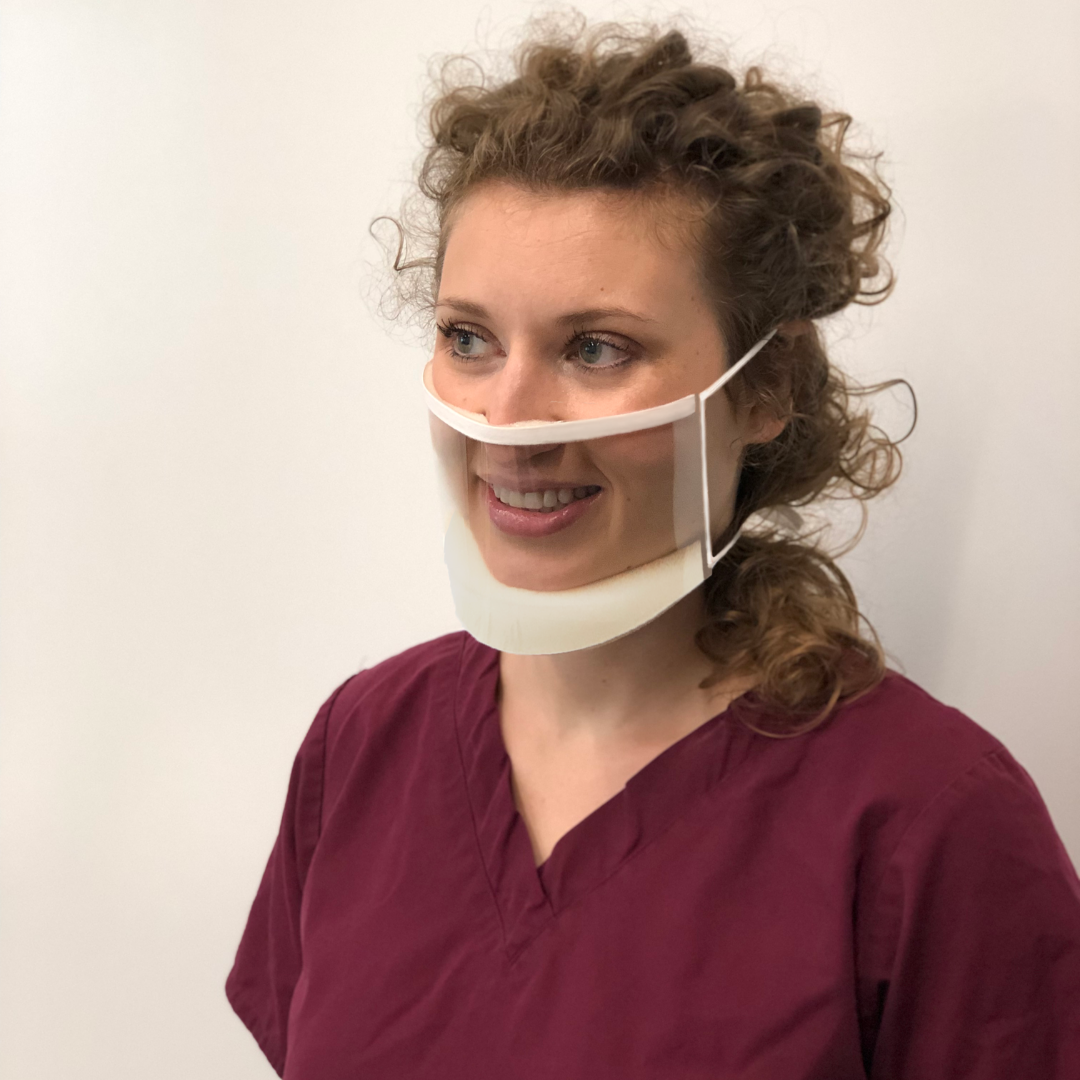A Transparent Face Mask Takes Off Amid Covid-19
ClearMask’s fast thinking has meant 12 million masks sold since April
WALL STREET JOURNAL
By Elizabeth Garone
ClearMask developed a transparent product to let people read lips and see facial expressions.
Allysa Dittmar has built a business most entrepreneurs dream of. It put its products on the market in April—and, about seven months later, has sold around 12 million of them.
Her business? Making masks.
All her life, Ms. Dittmar has depended on facial expressions, lip-reading and facial clues for communication. She was born deaf.
In 2015, she needed to undergo surgery, but due to a scheduling mix-up, her sign-language interpreter didn’t show up. While waiting outside the operating room, her surgeon pulled down his mask and apologized, lamenting that the team didn’t have transparent masks.
So, Ms. Dittmar, who was 23 and planning to attend the Johns Hopkins Bloomberg School of Public Health, was left in an operating room full of people wearing surgical masks and no way to see their faces. She “had no idea what my surgery team around me was saying,” she says. “It was a very dehumanizing experience” and caused “a lot of anxiety, confusion and fear.”
Waiting for clearance
When Ms. Dittmar arrived home after her surgery, she and her partner, Aaron Hsu, a student at the school of public health, scoured the internet for transparent masks but came up dry. “I basically did not want the experience to happen again or to have anyone else go through that experience,” she says.
Allysa Dittmar and her co-founders originally intended their products for specialized populations in health care.
Two years and many prototypes later, Ms. Dittmar and Mr. Hsu founded ClearMask LLC with two of their classmates to make transparent masks. The company, based in Baltimore, was initially planning to “mostly serve specialized populations in health care, including deaf and hard of hearing, children and older patients,” she says.
In 2019, the team submitted the transparent mask to the Food and Drug Administration for clearance to be used in medical applications. They were still waiting for word from the agency in February 2020—when frantic requests started coming from overseas for masks.
“We started getting an influx of calls and emails from desperate mask suppliers and distributors in China,” Ms. Dittmar says. The companies knew about ClearMask from its website, which talked about the product before it got clearance, and contacts in the medical field.
A big decision
As the founders waited for FDA clearance, Covid-19 grew into a global public-health crisis, and there were widespread PPE mask shortages in the U.S.
Their mask still hadn’t been cleared for medical use—but, given the shortages, the company quickly came up with a different rollout plan. The team decided to expand their product line to include a less expensive version that didn’t need clearance, for consumers, businesses, governments, schools and some front-line workers.
Aside from providing protection, the company figured, many people outside of the deaf community would find the transparent masks useful during the pandemic—seeing faces would calm their anxieties.
For a bulk box of 432, the nonmedical masks are currently about 70 cents cheaper per mask—$2.78 vs. $3.47—than the FDA-cleared version. For boxes of 24, the discount is more than 80 cents.
The company had to track down new production facilities and overhaul its e-commerce process, which was set up for bulk sales of medical masks, for the consumer market. That meant taking on new personnel—quickly—to help out. By July, the staff had grown to 250 from the original four.
In the middle of all the scrambling and growing pains, at the beginning of April, the team got the news by email: The FDA had cleared the mask for medical use. “It was all serendipitous timing,” says Ms. Dittmar.
The result of all this: Since April, about 12 million transparent masks have been sold world-wide.
“We spent enormous amounts of time listening to stakeholders, users and beneficiaries to make sure that we were building something that people really wanted,” says Ms. Dittmar.


